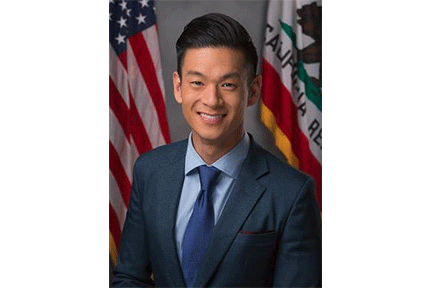On Friday, Governor Gavin Newsom signed AB 1475 into law which bans police from sharing on social media the arrest photographs (mugshots) of individuals who are charged with non-violent offenses.
The bill was sponsored by Assemblymember Evan Low (D-Sillocan Valley) who took to social media saying that “social media shouldn’t be used as a weapon against people who are innocent until proven guilty.”
Low accused police departments of using their social media accounts to “shame suspects” by posting their mug shots, names and alleged crimes. These accounts include Facebook, Twitter, Instagram and Nextdoor.
The bill passed in a 74-0 vote in the State Assembly on July 12 and in the State Senate in a 39-0 vote on July 8.
According to the Bill:
This bill would prohibit a police department or sheriff’s office from sharing, on social media, booking photos of an individual arrested on suspicion of committing a nonviolent crime, as defined, unless specified circumstances exist. The bill would require a police department or sheriff’s office that shares, on social media, a booking photo of an individual arrested for the suspected commission of a nonviolent crime to remove the information from its social media page, upon request, unless the same specified circumstances exist. The bill would require a police department or sheriff’s office to remove the booking photo of a person who has committed any other crime from social media if the individual’s record has been sealed, the individual’s conviction has been dismissed, expunged, pardoned, or eradicated pursuant to law, the individual has been issued a certificate of rehabilitation, the individual is found not guilty of committing the crime for which they were arrested, or the individual was ultimately not charged with the crime or the charges were dismissed.
Here is a look a the text of the law:
SECTION 1.
The Legislature finds and declares all of the following:
SEC. 2.
Section 13665 is added to the Penal Code, to read:
13665.
(a) A police department or sheriff’s office shall not share, on social media, booking photos of an individual arrested on suspicion of committing a nonviolent crime unless any of the following circumstances exist:


3 comments
LOL…come on Gavin, this State is on fire everywhere! Let’s focus on bigger things!
Gavin is grasping for straws! He’s on the way out and knows it. Gavin is trying to appease the criminals now since everyone else seems to know what he’s all about. He may the say of Grey Davis
Can the rest of us post mugshots of criminals on social media?
Comments are closed.